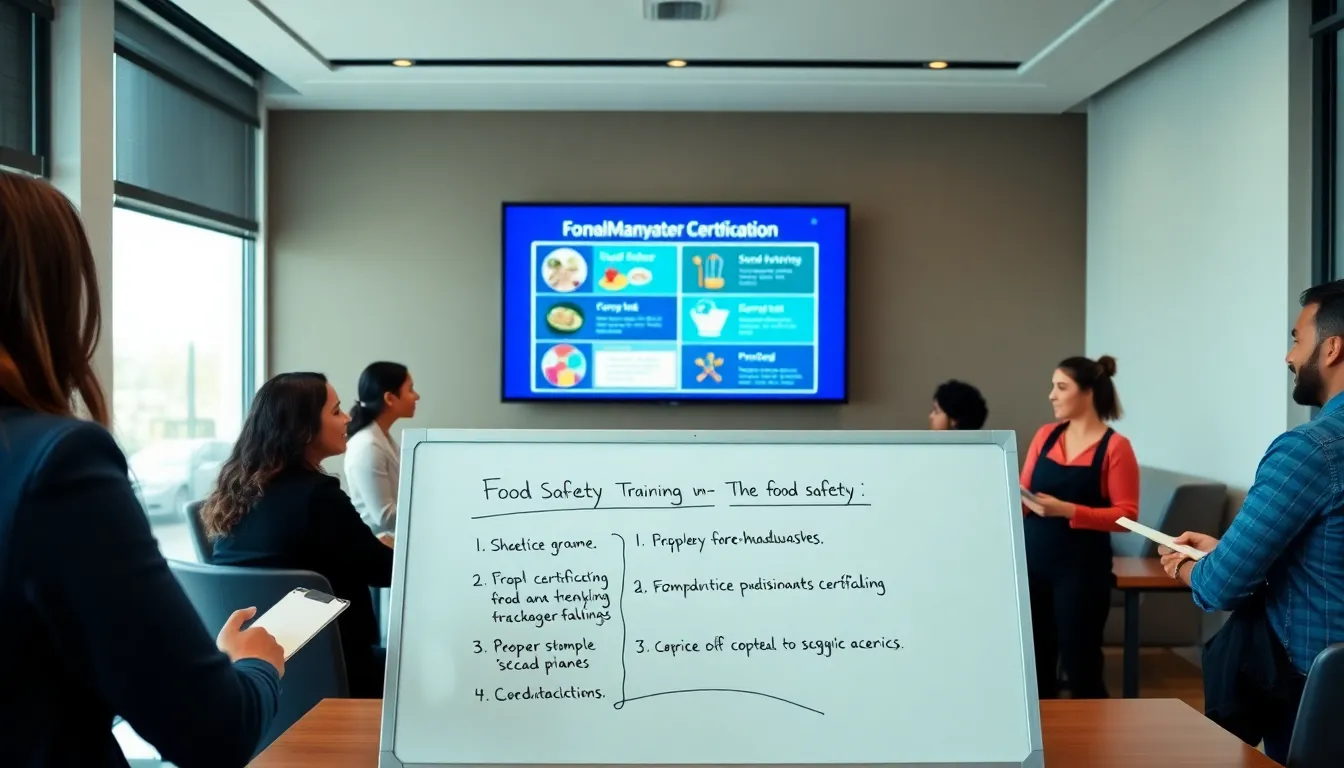Are you ready to tackle the Food Manager Certification exam in Texas? If your answer is a nervous “yes” followed by imaginary flashbacks of your last science exam, fear not. This guide is brimming with tips, answers, and a sprinkle of humor to make this daunting journey a tad more enjoyable. After all, navigating food safety doesn’t have to feel like trying to find your way out of a corn maze, let’s dig in.
Table of Contents
Understanding the Food Manager Certification

In Texas, the Food Manager Certification is a vital credential for anyone looking to oversee food handling in establishments like restaurants, cafes, or food trucks. This certification isn’t just a piece of paper: it demonstrates a commitment to food safety standards and regulations that protect customers, and thankfully, it’s often required by law. By obtaining this certification, one shows their proficiency in managing food-related operations, so ensuring a hygienic eating experience.
The journey begins here: aspiring food managers must grasp the significance of food safety. Simple practices like proper handwashing and correct food storage can prevent foodborne illnesses and eventually save lives. So, understanding the core principles isn’t merely an academic exercise: it prepares them for real-world scenarios in the kitchen.
Food Manager Certification Texas Exam Answers
Before diving headfirst into exam preparation, it’s essential to first understand the eligibility requirements. In Texas, candidates generally need to be at least 18 years old. In some instances, individuals as young as 17 may qualify with parental consent.
Also, those currently enrolled in a school food service program might also be eligible. This ensures that even individuals in training can increase their qualifications early in their careers. Previous experience in the food service industry is less of a requirement, but it can certainly provide context during the certification process, giving a competitive edge.
Exam Format and Structure
Understanding the exam format is key to effective preparation. The Food Manager Certification exam in Texas typically consists of 40 multiple-choice questions. Candidates are given a set time limit to complete them, usually between 2 to 3 hours.
Common Topics Covered in the Exam
The exam tests knowledge across several vital topics, including:
- Food Safety Principles: Understanding temperature control, cross-contamination, and hygiene practices.
- Menu Planning: Creating menus that adhere to health guidelines.
- Employee Hygiene: Ensuring all staff are trained in personal hygiene practices.
- Safety Regulations: Familiarity with local and state health department requirements.
Being well-versed in these areas not only aids in passing the certification but is fundamental to maintaining a safe kitchen environment.
Preparation Resources and Study Guides
The right study materials can make all the difference in preparation. Aspiring food managers can find a variety of online resources, textbooks, and practice tests designed specifically for the Texas certification exam. Many public libraries or educational institutions offer free access to study guides, making it cost-effective.
Test-Taking Strategies
When the exam day arrives, remaining calm is crucial. Here are some strategies to consider:
- Practice Tests: Taking several practice exams can help identify weak areas and build confidence.
- Time Management: Familiarize oneself with the exam format to allocate time wisely for each section.
- Stay Positive: A positive mindset can significantly alleviate test anxiety and promote performance.
By employing these strategies, candidates can navigate the exam with greater confidence and ease.
After the Exam: What to Expect
So, the exam is over: now what? For many, the waiting game begins. Candidates typically receive their results within a few days. Those who pass will receive their food manager certification, which they can proudly display. For those who don’t pass, it’s not the end of the world. Many examinees can retake the exam after a set period, giving them another shot to prove their expertise.
Also, it’s important to keep the certification up to date. Certification renewals typically occur every five years, aligning with changing regulations and standards. Staying updated with ongoing education can only enhance one’s credentials and career prospects.
WPFaspe, the prolific author behind the enlightening works housed within Faspe, passionately contributes to the educational haven as a beacon for educators, parents, and students. With a resolute commitment to nurturing the unfolding journey of education, WPFaspe’s writing encapsulates a dedication to fostering growth, curiosity, and learning at every step, embodying the fundamental belief that education is a perpetual voyage rather than a mere destination.

